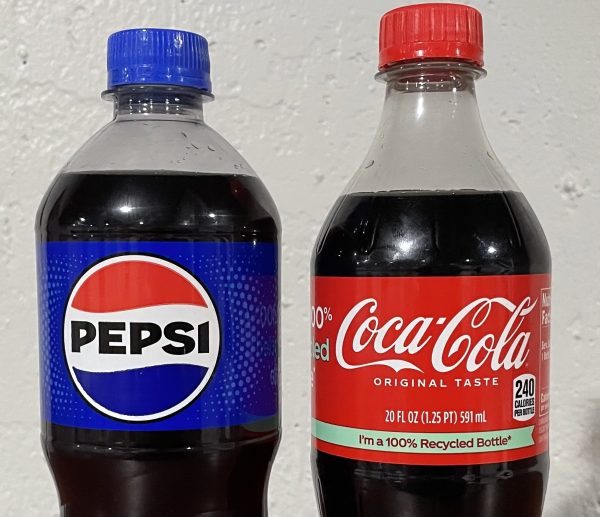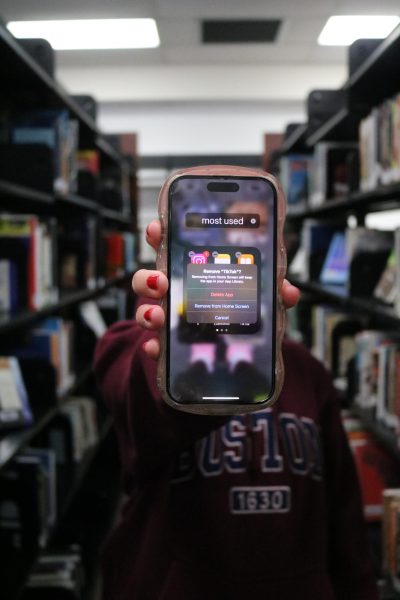Lake County Continues to Administer Vaccines, Now Including Teachers
Places like the Lake County Fairgrounds are currently giving out Covid-19 vaccines by appointment for those over 65, essential workers and long-term care facility residents.
Starting in late January, eligibility in Lake County for the Covid-19 vaccine extended to adults 65 and older and frontline essential workers. Those now able to receive the vaccine include public transit workers, corrections workers, inmates and educators, including LHS teachers and administrators.
One teacher who has received his first vaccination dose is Ryan Ebling.
“I felt a little bit emotional, like [the vaccine] is the thing that we’ve been waiting for for so long, and I’m getting it now,” Mr. Ebling, who teaches English, shared.
While access to the vaccine is still limited, Lake County has instituted the AllVax Portal, an online registration on the county’s website, so that residents can be notified when they are eligible to schedule a vaccination appointment. Lake County Board Member Jennifer Clark, who represents Libertyville, attributed the county’s organized distribution of vaccines to this tool.
According to the Lake County Coronavirus Data Hub, there are over 330,000 registrants through the portal yet only just under 73,000 vaccine doses have been received by the county’s health department. The county as a whole has administered more than 102,000 doses, resulting in nearly 3.6% of the population being fully vaccinated.
As indicated by the entire county administering more vaccines than the health department alone, vaccination sites set up by the health department are not the only way to receive a vaccine. Other distributors include local hospitals, health care providers and pharmacies, with more sites planned to open.
Choir director Jeff Brown received his first vaccine dose at Round Lake High School, one of two sites accessible to District 128 teachers, the other being Stevenson High School.
Registrants could not enter the building before their designated time and each vaccine recipient was required to wait 15 minutes after their shot to be monitored by emergency medical technicians for negative bodily reactions to the dose, according to Dr. Brown.
“Everybody was very nice and kind,” he said, describing the approximately 30 minutes he spent at the site. “I think everyone there felt good to be there and be able to get in and get [their vaccination] going.”
The Lake County Health Department’s goal is to vaccinate 80% of the population, approximately 560,000 people, but with inconsistent quantities of vaccines received each week, it is uncertain when this will be accomplished. The week of Jan. 4, over 13,000 vaccines were received whereas the week of Feb. 8 saw only 8,300 vaccines.
“If we were to [vaccinate] all these people in six months, we would need 43,000 doses a week to distribute, which the Lake County Health Department could totally do,” Clark said. “It’s literally there isn’t any more vaccine…each week when they get the doses, they allocate every single dose.”
It is unclear when the county will move into the next stage of vaccination, 1c, which includes people ages 16-64 with health conditions that place them in a high-risk category as well as additional essential workers. This description is not definite as each category’s requirements are subject to change.
For now, teachers such as Mr. Ebling and Dr. Brown are able to slightly ease their anxieties over their safety from the virus.
“[The vaccine] gives me a sense of hope that we can get back to our normal lives, that we can walk around outside without a mask on and feel like we’re not going to die,” Dr. Brown said, noting that while he feels more secure being around people following his vaccination, his interactions and commitment to safety will not change.
Research surrounding the vaccine is inconclusive when it comes to a person’s ability to continue transmitting the virus after being fully vaccinated.
“How much the vaccine impacts transmission…makes me a little bit nervous coming home to my family or being closer to students,” Mr. Ebling shared, noting that his in-person interactions with students would not change as he completes his vaccination process.
“I felt really grateful to the people who were there,” Mr. Ebling said as he detailed his vaccination experience at the Stevenson High School site. “I felt like I admired them, the people who were asking me the screening questions, and telling me where to go, and the person who gave me the shot…I just felt a lot of admiration and gratitude for them.”
Clark shared similar sentiments. “It’s the happiest place on Earth,” she said. “People cry, they’re so happy, and everyone who works there is so nice.”
The first two Covid-19 vaccines approved for use require two shots to be effective; Pfizer-BioNTech recommends doses of its vaccine be given a minimum of three weeks apart while Moderna recommends a full month between doses. A single-dose vaccine, produced by Johnson & Johnson, was authorized for use by the U.S. Food and Drug Administration at the end of February, making it the third vaccine approved in the U.S.
Developing immunity, even with the assistance of the vaccine, typically takes a few weeks, according to the Centers for Disease Control and Prevention.
As the vaccination continues to reach more of the population, Clark emphasized the county’s efforts to ensure its equitable distribution. “People can rest assured, as long as they sign up for AllVax, they will get a vaccine. It is free, and it doesn’t matter your immigration status,” she said. “For public health, you need everyone to get it, so…we want people to feel welcome.”




![Mr. Abullh Ali, manager/assistant, helps open Queen Yemeni Coffee in downtown Libertyville at 606 North Milwaukee Ave. With the help of employees such as manager and LHS senior Yousef Taha, they are able to bring the Yemeni and Ethiopian culture to Libertyville by using their Queen spices, cinnamon and cardamom in their drinks such as Adani Chai, which is inspired by Sheda, the Queen of Yemen and Ethiopia. “The history of our coffee [is] a long history and we believe that Yemen and Ethiopia started the coffee and we are bringing something unique to the community,” Mr. Ali said.](https://www.lhsdoi.com/wp-content/uploads/2025/04/Photo-1-600x400.jpg)



